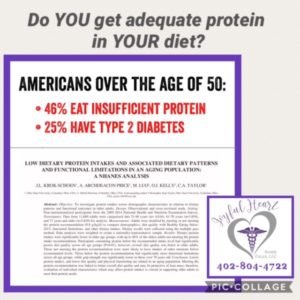For the past 50+ years, many agencies and experts have recommended a low fat, low cholesterol diet to manage diabetes, heart disease, and just overall good health. However, much of this advice began as one man, Ancel Keys, decided that fat “must” be the cause of heart attacks. More information on Keys’ influence can be found in Barbara’s blog post about the low fat dogma on Feb. 23, 2015.
Low fat nutrition was thought to be the best way to maintain health, get healthy, and prevent many diseases. However, after 50 years of low fat eating, we have not eliminated, nor reduced heart disease, diabetes, or obesity; in fact, all of those conditions have worsened.
But here is where cholesterol got its bad name:
In 1955, President Eisenhower had a highly publicized heart attack; at the time, his total cholesterol was 165 mL/dL – normal is considered to be less than 200 mL/dL. According to media reports that were held daily during his recovery, Eisenhower ate dry toast and coffee for breakfast every morning. He was supposedly allowed 1 egg per week as part of his prescribed low fat, low cholesterol diet. Even though he continued the low cholesterol diet, he suffered several more heart attacks and left office with a 259 mL/dL total cholesterol level; he died of heart disease anyway.
Over the next several years, food manufacturers began producing low fat, low cholesterol products as fast as possible; trying to keep up with all the media attention on President Eisenhower’s health conditions, hundreds of other low fat foods like margarine, skim milk, & corn oil were developed and marketed. By 1957, margarine outsold butter for the first time. Many of these low fat products contained a large quantity of omega-6 linoleic acid and in excess, this particular fat causes injury and systemic inflammation within the bloodstream and multiple other tissues within the body.
Presidential Influence…
By 1961, Eisenhower left office and left his mark on nutritional history for decades. This same year, findings from the massive Framingham Heart Study were released; this study showed that overweight men under 50 years old who had high cholesterol, smoked, and did not exercise were at higher risk of heart attacks and heart disease. One correlation completely overlooked was elevated glucose; no one seemed to make the connection to high blood sugar, but they made famous the Framingham risk factors, which continue to be included in today’s health assessments across the nation. None of the researchers actually ever made any true connection between the elevated cholesterol levels and heart disease. The “risk factors” made the headlines and drew all the attention. The other problem with the Framingham Heart Study was that it did not address the highest rate of heart attacks which was in men above the age of 50. All of the data presented in this huge and well-respected study only presented data from men under 50 years old, the least likely men to suffer from heart attacks or strokes. Much publicity and media attention was given to the “risk factors” as presented in this study, while no mention was made of the possible relationship to sugar, or the fact that the healthiest population had the highest risk factors. All of this activity in nutrition and health led to the huge expansion & reach of the American Heart Association; with all the focus on Eisenhower’s health & AHA’s dietary advice, TIME magazine’s January issue hit the newsstands with Ancel Keys on the cover. Now, the media has a job to do: tell the nation just how terrible fat is for us, and they did quite an excellent job of it… repeatedly…consistently…persistently…frequently…repetitively…doggedly…
The AHA gets involved…
By 1966, the food industry has begun to taint dietary advice when a member of the board of the American Heart Association published a book, Your Heart Has Nine Lives. Author, Jeremiah Stamler was a friend and support of Ancel Keys, and the publication of his book was funded by Mazola Corn Oil and Fleissmann’s Margarine.
The federal government’s Women, Infants, & Children’s program, also known as WIC, adopted the AHA’s stance for low fat nutrition for all pregnant women and children; basing nutrition on the low fat mantra, WIC began distribution of vouchers for low fat and skim milk products in 1970. Later in the 1970s, George McGovern organized and hosted a series of hearings where politicians and other government employees gathered to argue the nutrition science, now widely publicized. While most were pretty biased against fats, none of them, including McGovern, had any real scientific background. The hearings were argumentative and truly not based on any research studies, but rather, on opinions of strong-willed politicians who were able to influence decisions and entire agencies.
Why didn’t someone stop them?
I know by now, many of you are asking, “why didn’t someone stop them?” “How come other scientists didn’t publish an opposing opinion or research study?” Well, a wide variety of people attempted to publicize other data; several scientists, including Margaret Albrink, Peter Kuo, Lars Carlson, Joseph Goldstein, Pete Ahrens, and several others continued to report that elevated triglycerides appeared to be a higher risk for heart disease. Even as far back as 1957, a well-respected children’s obesity expert said, “The great progress in dietary control of obesity was the recognition that meat was not fat producing; but that it was bread and sweets which lead to obesity.”
No one could hear the opposition, however. Keys developed close ties to the White House during Eisenhower’s unhealthy years after the heart attack, as he tried to help “heal” Eisenhower’s heart disease with his low fat diet. Power and strong personalities led the media where they wanted, and opposing viewpoints were silenced quickly by removing grant funding from some researchers. Others were simply “un-appointed” to nutrition committees, or touted as fakes or quacks who did not want to follow the AHA’s new “rules”.
Sugar touted as “safe”…
When these low fat rules were actually finally release in 1977, the American Medical Association was quite skeptical and at first, refused to succumb to the AHA’s recommendations. However, the media hype was intense and repetitive, and by the mid-1980s, the AMA enthusiastically joined the low fat bandwagon. Also in 1986, the Food & Drug Administration (FDA) issued statements that there was “no conclusive evidence” that sugar contributed to disease, and even said that up to 25% of all calories could come from sugars, although this recommendation completely eliminated nutrients, vitamins, or fiber.
As the “war on cholesterol” raged in the late 1980s, statin manufacturers were busily researching and developing medications that would lower cholesterol; the first one was moved through the FDA rapidly and released to market in 1987. Since 1990, the rate of congestive heart failure has more than doubled, and some experts believe the increase is directly related to the massive number of statin prescriptions filled daily.
After only 14 years of encouraging sugar intake up to 25% of total daily calories, the diagnosis of type 2 diabetes had begun to skyrocket. About 80% of diabetic patients were dying of heart disease. While per capita sugar intake jumped from 15 pounds in 1830 to 150 pounds in the year 2000, fat intake dropped from 18 pounds to 4 pounds in the same time period. Obesity had become an epidemic, as 30% of Americans were overweight and still gaining weight.
Massive media blitz…
Between 2005 – 2009, many organizations including the Corn Growers Association has begun spending millions of dollars, lobbying Congress and the public with the massive media message that high fructose corn syrup is safe for toddlers and children. Gyms and workout centers abound in every community, as Gary Taubes became an advocate of exercise to lose weight and be healthy. Nutrition and health science has become quite the booming business, all while the incidence of heart disease continues to climb, and the rate of diabetes has jumped from 1 in 30 Americans in 1910, to 1 in 3 by 2008.
Just a few weeks ago, in early 2015, the US Dietary Advisory Council issued a statement saying that it would retract its recommendation for a low cholesterol diet. However, in the body of the news release, the Council continues to advocate for a diet high in unsaturated fats like those found in nuts, fish, olives, & vegetable oils. While this statement is the FIRST baby step in the right direction, the low carb science continues to build support in a wide array of settings. Small journals publish articles and studies, but mainstream medical journals continue refusing to print these studies, likely because millions of advertising dollars come from statin & insulin makers. Social media has become a source of nutrition advice and specialized groups have developed on Facebook & Twitter, where patients have taken control of their own health. They share stories of medical providers who refuse to listen to reason and dieticians who teach them how to eat 130 – 150 grams of carbohydrates DAILY, while taking multiple medications to help manage the elevated glucose readings and life-changing complications like vision loss, nerve pain, and kidney failure. These Americans are facing their diseases head-on, with dedication and persistence; they share meal ideas, recipes, and tips on how to reduce medications, because physicians and health care providers don’t. They help each other cope with sugar addictions, cravings, and “missing” carbs. They help interpret lab results when the clinic doesn’t really offer much education in reading the near-hieroglyphics printed out.
Many of these people have completely eliminated diabetes and cholesterol medications using a low carb, high fat nutrition plan. It’s not a 30 day or 90 day fad “diet”. Low carb high fat (LCHF) is a total and complete lifestyle change that is meant to be permanent. LCHF offers much nutrient value, satiety or holding power, and much better glucose & cholesterol control. And this eating plan actually makes really good, logical sense; if sugar is the problem, why not remove sugar from the diet?
Real cause of heart disease…
Over the past 3-5 years, it has become more evident that elevated glucose and high triglycerides contribute to high numbers of heart attacks and strokes; inflammation contributes to another huge portion of heart disease. Once thought to be safe and free from harm, sugars, vegetable oil, and soy are being linked to increased systemic inflammation within the bloodstream. Add these inflammatory markers to thick, sticky blood, and even to tobacco use, and you have “3 strikes, you’re out.” Inflammation, sugary blood, and smaller blood vessels are all linked to the highest incidence of heart attacks, clots, and strokes – so, to answer the original questions…
Does cholesterol cause heart attacks? Is fat bad for me? NO… a RESOUNDING NO! Cholesterol NEVER was found to have any true relationship to heart attacks, as you can see by the history provided here. Fat was NEVER bad for us; NATURAL fats that come from animals and plants, without massive processing, are necessary for every cell of the body. The entire cell membrane of every single cell is made of a fatty layer; fats are required for most hormones to function properly. Natural fats are not unhealthy; the unhealthy fats include those that require many man-made processes. Corn oil, canola oil, vegetable oil, margarine and shortening are the most common examples of the truly UNhealthy fats.
Healthy fats include coconut oil, butter, ghee, heavy cream, olive oil, pork fats, bacon grease, lard, beef fats, full-fat cheese, avocado, avocado oil, & tree nuts. Start your LCHF nutritious eating plan today! Eat more fats!!!
Thanks to https://www.dietheartpublishing.com/diet-heart-timeline for a great timeline!




